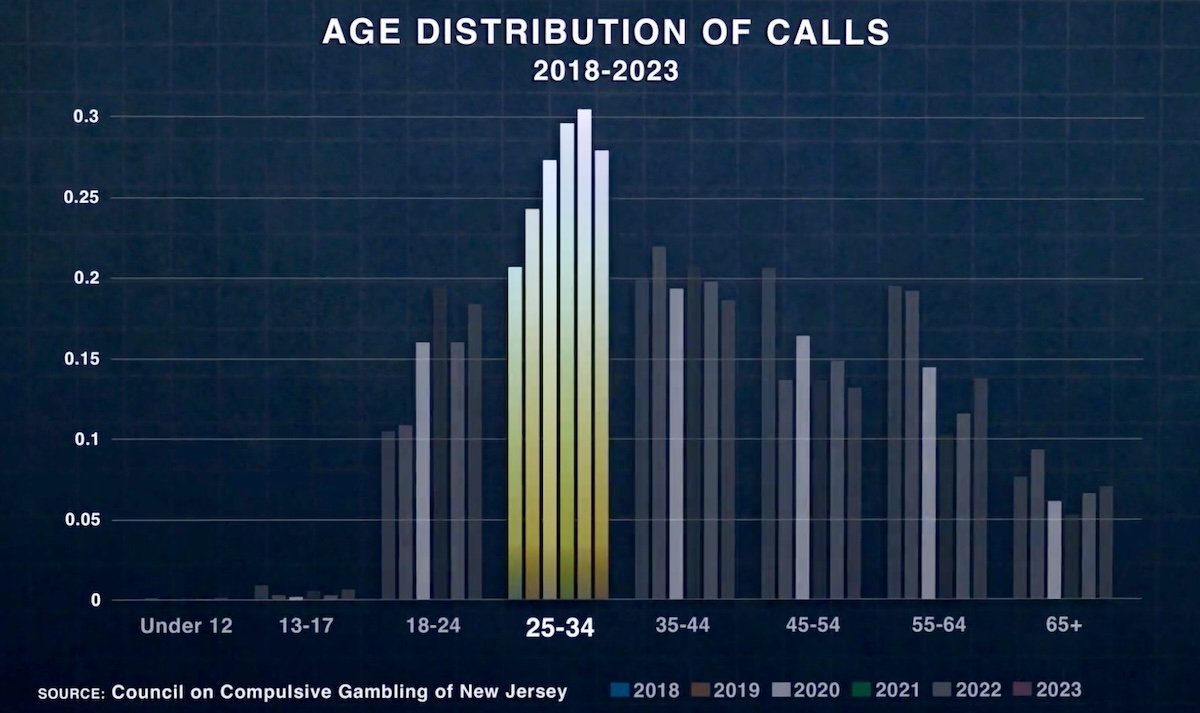Peer pressure is a catalyst to many addictions and compulsive behaviors in impressionable populations. For generations it has played a role in alcohol and drug use from an early age, and now America is seeing it play a role in the development of gambling disorder amongst young men.
“Peer pressure was a reason why some participants engaged in sports wagering. They found it difficult to not gamble when all their friends were doing so. Others said they just followed the behaviors of their friends. Some expressed negative opinions about how gambling had dominated peer discussions […] Language use among peers encouraged sports wagering. Conversations about sports often involved a discussion about gambling options and markets. Most participants felt that the discussions helped them relate and created a sense of social connectedness.”
Gambling Research Exchange Ontario (GREO)
This pressure to participate in sports betting within peer groups is contributing to the country’s gambling crisis. Ever since the U.S. Supreme Court removed the federal ban on the activity in 2018, cases of problem gambling have risen at a record pace, with data showing that young American males between the ages of 25-34 are being threatened the most.

Consequently, gambling peer pressure must be addressed head-on with initiatives to mitigate the damage it’s doing to the most vulnerable demographic. Below is a look at how the country can make this happen.
Powerful Methods to Prevent Peer Pressure to Gamble Amongst America’s Impressionable Young Men
Early Intervention Education
Intervention is required before young men become young men. We have heard a number of personal accounts of teenage boys using their smartphones to gamble while in class. It is fairly easy for tech-smart teens to intervene age verification tools using older siblings’ and parents’ IDs and payment methods to set up on sports betting and casino apps.
The Center for Addiction and Mental Health (CAMH) suggests that education regarding drug and alcohol harms should begin at a very young age (6 and up), so it makes sense to integrate discussion regarding the harms of gambling at this point as well. Early intervention practices from parents should include the following:
- Talk to kids about gambling advertising (view tips)
- Don’t ever gamble around them
- Remove gambling apps and block access on household devices
- Get them involved in sports and other healthy physical activities
- Limit and monitor the video-gaming (cooccurs with gambling disorder)
Meanwhile, both elementary schools and high-schools can introduce education about the dangers of gambling into their curriculums. While general discussions are important, it’s best to lean on the expertise of trained professionals in the same manner as sex education is brought into classroom settings. As an example, in Missouri, an organization called Leadership Commitment is working with Kindbridge Behavioral Health to integrate problem gambling education into their coaching of high-school student athletes.
Establish Post-Secondary Policies and Programs
Peer pressure to gamble doesn’t end in adolescence, and so education and policy should extend to young males as they leave high-school and enter college and the workforce.
At a collegiate level, policies against sports betting exist for NCAA athletes, but these are primarily punitive in nature and have not stopped gambling peer pressure from impacting athlete behavior. When Iowa and Iowa State universities launched an investigation regarding gambling policy violation into 26 athletes, it was pretty clear that some level of peer pressure was involved. Colleges and universities across all 50 U.S. states are encouraged to follow the example of Colorado’s Athlete Wellbeing Program, which is designed for collegiate athletes and addresses problem gambling in its holistic mental and behavioral health platform.
Colorado further serves as a model of problem gambling support for young males in the military – where peer pressure and groupthink are also strong. In partnership with the State of Colorado, Kindbridge Research Institute KRI is delivering four programs that provide military personnel with access to important care services, support groups, post-secondary fellowships and career training, with problem gambling intervention and treatment being an important component.
Mitigating the risk of peer pressure to gamble should also be felt in the general workforce, as many organizations exhibit groupthink behavior. View our guide to protecting staff and stakeholders from gambling in the workplace.
Fight Gambling Peer Pressure with Peer Support
Peer influence can also work in a positive direction, and be used to actually fight against social pressure to gamble. While Kindbridge offers one-on-one private counseling services for problem gamblers, we have also made available online support groups where peers communicate, engage, and work through healing together. Group counseling provides a social component that offers participants an opportunity to relate to and connect with others who have experienced the same thing. If you’re struggling with problem gambling, click the link below to explore the benefits of peer support.
Concerned Individuals, Parents, Educational Institutions, and Organizations
CALL +1 (877) 426-4258
OR


